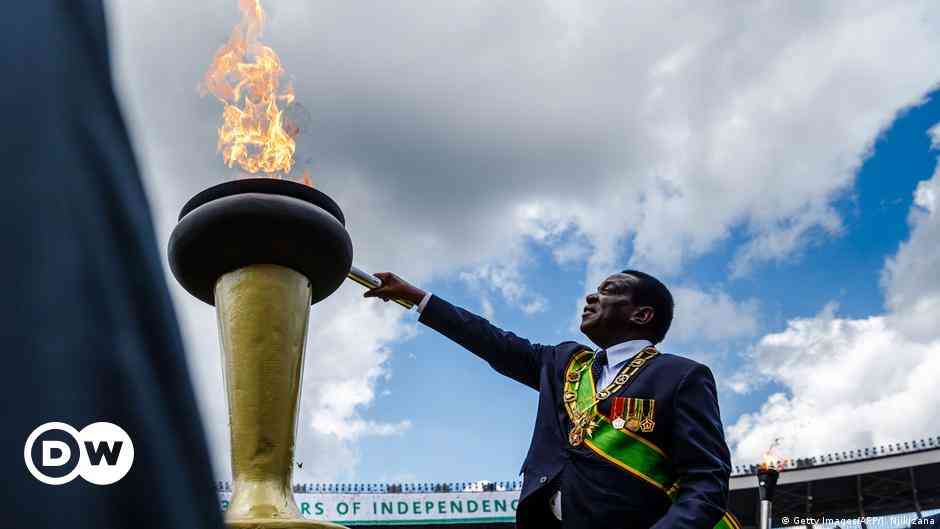
The extent to which the Third World attributes responsibility for its present condition to colonialism or to other past actions and attitudes of the Western powers may often be exaggerated, but there remains enough truth in the charge to provoke hot denials by the West; these denials are an indication of the relevance of the moral element, even though they do not prove the validity of the charges.
By Nothando Bhila
It is not suggested that states will sacrifice their vital interests to atone for past crimes, even if admitted, the moral element is rarely, if ever, a controlling factor in international relations.
It remains, nonetheless, a consideration, the importance of which should not be ignored.
To some extent, the African governments have surely consented to their current economic predicament through their actions.
Companies listed on the London Stock Exchange control over $1 trillion worth of Africa’s resources in just five commodities — oil, gold, diamonds, coal and platinum.
Research for the NGO, War on Want, which has just been published, reveals that 101 companies, most of them British, control $305 billion worth of platinum, $276 billion worth of oil and $216 billion worth of coal at current market prices (http://www.huffingtonpost.co.uk/author/mark-curtis).
The “Scramble for Africa” is proceeding apace, with the result that African governments have largely handed over their treasure.
- Chamisa under fire over US$120K donation
- Mavhunga puts DeMbare into Chibuku quarterfinals
- Pension funds bet on Cabora Bassa oilfields
- Councils defy govt fire tender directive
Keep Reading
Tanzania’s gold, Zambia’s copper, South Africa’s platinum and coal and Botswana’s diamonds are all dominated by London-listed companies.
They have mines or mineral licences in 37 African countries and control vast swathes of Africa’s land: their concessions cover a staggering 1,03 million square kilometres on the continent.
This is over four times the size of the United Kingdom and nearly one-twentieth of sub-Saharan Africa’s total land area.
China’s resources grab has been widely vilified, but the major foreign takeover of Africa’s natural riches springs from a lot closer to home.
Many African governments depend on mineral resources for revenues, yet the extent of foreign ownership means that most wealth is being extracted along with the minerals.
In only a minority of mining operations do African governments have shares.
Company tax payments are minimal due to low tax rates, while governments often provide companies with generous incentives such as corporation tax holidays.
We need to radically rethink the notion that Britain is helping Africa to develop.
The UK’s large aid programme is, among other things, being used to promote African policies from which British corporations will further profit.
British policy in Africa, and indeed that of African elites, needs to be challenged and substantially changed if we are serious about promoting long term economic development on the continent.
The result is that Africa, the world’s poorest continent, is being further impoverished.
Recent research calculated, for the first time, all the financial inflows and outflows to and from sub-Saharan Africa to gauge whether Africa is being helped or exploited by the rest of the world.
It found that $134 billion flows into the continent each year, mainly in the form of loans, foreign investment and aid.
However, $192 billion is taken out, mainly in profits made by foreign companies and tax dodging. The result is that Africa suffers a net loss of $58 billion a year. British mining companies and their government backers are contributing to this drainage of wealth.
World Trade Organisation (WTO) was formulated in 1994 and it has 13 principles which include non-discrimination, which entails the principle of The Most Favoured Nation (MFN) and National Principle, free trade areas, phyto-sanitary measures, reciprocity, transparency embedded in Article X of the GATT and Article 3 of the GATS, among other principles, https://en.wikipedia.org/wiki/World_Trade_Organization.
African countries have had instances where they were requested not to pay subsidies to their farmers and yet because they are developing their countries, need it more so as to cushion their farmers, especially with most of their economies currently still being agro-based.
This has seen them not fully benefiting from the WTO and the issues continue to be discussed, but the sheer exclusivity of Africa was exposed seeing the developed countries’ farmers have access to decent farming inputs unlike their counterparts.
At the same time because Africa lacks industrial capacity it has not been able to take full advantage of the economic opportunities at hand from the WTO constitution membership.
The WTO principles have been violated by the United States to the peril of Africa through the formation of the African Growth and Opportunity Act (AGOA).
This is a United States Trade Act, unilaterally formed and run from the White House.
It was enacted on May 18, 2000 as Public Law 106 of the 200th Congress. AGOA has since been renewed to 2025.
The legislation significantly enhances market access to the US for “qualifying” Sub-Sahara African (SSA) countries, https://agoa.info/about-agoa.html.
Selection criteria are based on the reports given by the respective ambassadors in the African states to the US President and trade meetings are held yearly.
Members of AGOA include Angola, Benin, Botswana and Burkina Faso.
Undoubtedly, the sour the relations with the US, as is the case with Zimbabwe, the more likely not to be included as a member and at the same time the higher the risk of being booted out should relations go haywire.
This has also played a part in hampering the African region’s integration as states compete to please the US and pursuit of national interests.
Nothando Bhila is a Pan-African writer passionate about issues to do with Africa and its relations as well as how it can best build its capacity











